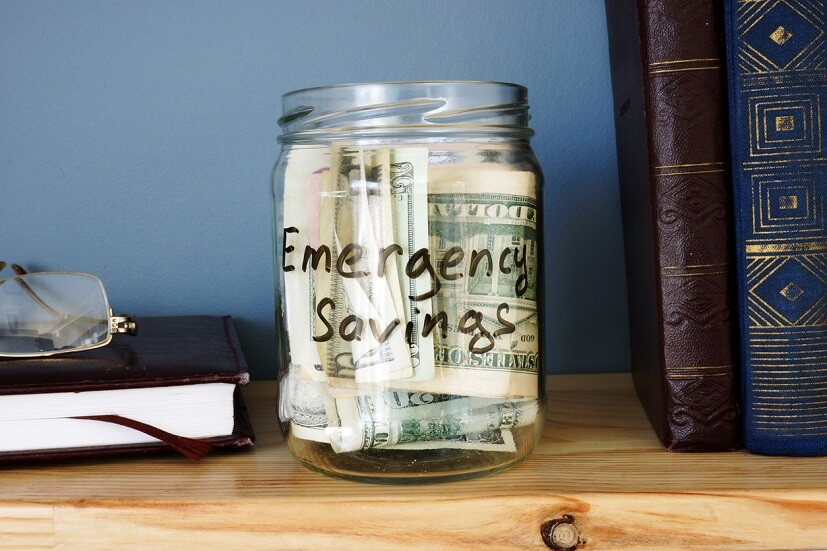Is My Money Working Hard Enough?
If you’re like most Singaporeans, you probably keep the bulk of your money in a savings account. And why wouldn’t you? Banks offer safety and assurance.
However, if your plans are for a mid- or long-term goal like your children’s education or your own retirement, a savings account may not be sufficient.
So, how and where else can you put your savings to grow them?
Here’s our take on how you can hone your financial strategy, with tips on when your money may works well in a bank account and when it could be put to better use elsewhere.
When You Should Consider Other Savings Options
Solely saving in a bank account may not be the most ideal when you’re looking at a longer term horizon. A ‘plain vanilla’ savings account may only yield around 1.5% interest per annum, although different banks do offer varying interest rates across their savings account options.
Today, there are savings accounts that are marketed as offering interest rates up to as high as 3% to 4% per annum, but only if you meet certain conditions – like spending above a certain amount on your credit card every month, and changing your salary crediting account, and maintaining a minimum account balance... That’s a lot of hoops to jump through!
Fixed deposit accounts are a stable alternative that conservative investors lean towards, but you could be missing out on the chance to make your money grow.
When to Save Money in a Bank Account
Keeping a certain amount of cash in a savings account is ideal, as it offers liquidity.
Besides your monthly living expenses, a savings account is a great place to store an emergency fund. In case anything happens, you can access the cash instantly, easily, and without any withdrawal penalties. In this case, a bank’s stability also works in your favour; the value of your emergency fund is protected from short-term market fluctuations.
For these reasons, bank accounts are a smart tool for meeting your next life goal, like a holiday overseas or minor home improvements.
What Alternatives Are There To Bank Accounts?
For goals 10 years and beyond, make your savings work harder with higher returns. Here are suggestions on other options
Insurance Savings Plans
Just like the name suggests, an insurance savings plan is an easy way to maintain a savings habit by ensuring you save money on a regular basis (by paying your premiums).
An insurance savings plan may also come with capital guaranteed at the end of the policy, so you get back what you put in. It’s generally a safer investment tool to diversify your portfolio’s risk and a less risky way of trying your hand at growing your money.
If you’re saving toward a mid-term goal, you can consider an insurance savings plan with a policy term ranging from 10-25 years. You have the option to pay for this in a frequency that you’re comfortable with, between monthly premiums to yearly premiums (and options in between too).
If your goal is to save for your retirement dream, park your money where it can work hard, plans like Income’s Gro Retire Flex Pro II are made to bring your retirement dreams to reality, with the added assurance of receiving a regular cash payout when you retire.
With such a plan, you pay a fixed amount on a regular basis for a fixed period of time, or via a one-time payment, depending on your financial capabilities. In some cases you can even determine your premium terms and when you want to receive your payouts.
While there’s no telling how market performance will change over time, a plan like Gro Retire Flex Pro II offers peace of mind by guaranteeing part of the retirement income payout. No matter how the market performs, you’ll still receive this amount when your policy pays out. Like insurance savings plans, you may receive more than the guaranteed return, depending on how well the insurance company’s participating funds perform.
Investment-Linked Plans (ILPs)
Personal finance involves making your money grow through investments and protecting your family’s needs through life insurance. An investment-linked plan (ILP) can easily provide both.
An ILP typically gives you the freedom to decide what asset classes to invest in, according to your risk profile and expected level of return. When you pay through regular premiums, you enjoy the dollar-cost averaging approach. Over a long period of time, you reap the benefits of staying invested in the market.
Income's Insurance Savings & ILP Plans
At each stage of your life, you’ll be faced with unique financial needs and challenges. By choosing the right insurance savings plan(s), you can gain the financial freedom and support to navigate these challenges effectively.
To give you more choices in your financial planning journey, Income Insurance offers a suite of insurance savings plans and ILPs tailored to diverse financial goals and risk appetites:
- Gro Cash Sure: An insurance savings plan, Gro Cash Sure offers capital guarantee1 upon the end of the premium term, with the assurance that you will get back the total premiums paid1 in the form of guaranteed cash value, making it suitable for those looking to grow their savings with certainty over a fixed period of time.
- Gro Retire Flex Pro II: An insurance savings plan, Go Retire Flex Pro II is designed with post-retirement life in mind and is intended to provide monthly cash payouts2 during your retirement, providing an illustrated total yield at maturity of up to 4.08% p.a.3,4. It also lets you choose your premium payment terms and payout period to suit your budget and retirement needs.
- AstraLink: An ILP, AstraLink offers the dual benefits of investment growth potential and life insurance coverage. It allows you to invest in an extensive range of funds that are continuously being monitored by a team of experienced investment professionals from as low a premium as S$100 a month – ideal for fresh graduates or young professionals embarking on their investing journey.
- Invest Flex: An ILP, Invest Flex provides the flexibility to tailor your investment to suit your lifestyle and preferences with the option to top up5 your investments anytime. You can even withdraw some of your investments at no charge when any specified life event6 occurs during the Minimum Investment Period (MIP), catering to changing life stages and financial goals. If you’re juggling multiple considerations like family, parental support, or mid-career changes, Invest Flex allows you to build your wealth in a way that suits your unique needs best.
Step-by-Step Guide to Getting Started with Insurance Savings Plans and ILPs
If this is your first time purchasing an insurance savings plan or ILP, here are some simple tips to help you ease into the process:
- Set financial goals: Identify what you’re saving for, whether it's retirement, education, or a large purchase. Ask yourself “Will my money grow best in a savings account” or if there are other alternatives to suit your needs and risk appetite.
- Assess your risk tolerance: Understand your comfort level with risk to choose a plan that suits you.
- Research: Explore different plans offered by Income Insurance or similar providers, and compare their features.
- Consult a financial advisor representative: Speak with a professional to get personalised advice based on your goals and financial situation.
- Choose a plan: Decide on the plan that best meets your needs and start your investment journey.
- Regularly review: Monitor your investments and adjust your strategy as needed to stay on track with your financial goals.
Tools and Resources for Financial Planning
For Singaporeans looking to make your money work harder, a variety of locally accessible tools and apps are available to manage investments, track savings growth, and stay informed on market trends. This includes apps for tracking and trading in the Singapore Exchange, online resource websites dedicated to personal finance and financial freedom, and individual bank apps.
The Final Word
Savings accounts still have a place in the creation of your financial masterpiece. They provide an easy way to access cash for emergencies or unexpected expenses. But if you’re chasing mid- to long-term financial goals, there are other options to savings accounts where your money can work harder elsewhere.
Where you choose to keep your money depends on your goals, your needs, and your risk appetite. Start your planning today for a richer tomorrow by connecting with a financial professional online.
Frequently Asked Questions About Growing Your Savings
What are the other alternatives for wealth generation in Singapore?
Apart from savings and investment plans, other alternatives for wealth generation or retirement planning in Singapore include real estate investment, stock market trading, and making cash top-ups or CPF transfers into your retirement account.
What are the tax implications of investing in alternatives to savings accounts in Singapore?
Singapore does not generally tax capital gains from sale of property, shares, and financial instruments, making it a favourable environment for investors. However, certain investments like property may still incur taxes and duties under specific criteria.
Are there any fees associated with investment plans like Regular Savings Plans or Retirement Savings Plans?
Yes, these investment plans typically have management and administrative fees, but they vary by plan.
Can I access my money easily if I invest in these alternatives?
Liquidity varies by plan, even within the same savings plan type. Some allow early withdrawals with penalties, and it’s always best to read through the full policy wording before signing on to a plan to understand the options being presented to you.
1 At the end of the premium term, if the policyholder did not cash in this policy and all premiums for this policy have been paid for, the guaranteed cash value for this policy is equal to total premiums paid, excluding premiums paid on riders. If the policyholder choose to cash in this policy partially, the sum assured after the partial cash payout cannot be less than the minimum sum assured limit or any other amount Income Insurance may tell the policyholder about. Income Insurance will use the new sum assured and reduced regular premium amount excluding premiums paid on riders to work out the guaranteed cash value (if any) from the policy entry date.
2 The cash payout consists of a monthly cash benefit and a non-guaranteed cash bonus.
3 This is for illustration purposes only. The total yield at maturity is not guaranteed and is based on the assumption that the Life Participating Fund earns a long-term average return of 4.25% per annum for a male non-smoker, aged 40, who chooses a retirement age of 70, a payout period of 20 years and pays a single premium. It is also based on the assumption that all cash benefits and non-guaranteed cash bonuses due for the entire policy term are paid out to the policyholder. Based on the illustrated investment rate of 3.00% per annum, the total yield at maturity will be up to 2.97% per annum.
4 The figures in the illustration are not guaranteed and are illustrated based on the assumption that the Life Participating Fund earns a long-term average return of 4.25% per annum in the future. Returns are illustrated based on estimated bonus rates that are not guaranteed. The actual benefit payable will vary according to the future performance of the Life Participating Fund. The calculation for the illustrated total yield at maturity also assumes that all cash benefits and non-guaranteed cash bonuses due for the entire policy term are paid out to the policyholder.
5 Income Insurance may set a minimum amount for each top-up. Income Insurance will use 100% of the top-ups to buy units (at the bid price) in the funds the policyholder chooses. When Income Insurance work out any claim benefit, Income Insurance will not consider any top-ups that were made after Income Insurance are told about the claim. Top-ups do not form part of the regular premiums. The policyholder cannot make any top-ups when the policy is on premium holiday.
6 During the MIP, the policyholder may choose to exercise a free partial withdrawal if the insured experiences a life event, subject to the policy’s terms and conditions. Please refer to the policy conditions for further details on the life events and the applicable terms and conditions.
This article is meant purely for informational purposes and does not constitute an offer, recommendation, solicitation or advise to buy or sell any product(s). It should not be relied upon as financial advice. The precise terms, conditions and exclusions of any Income Insurance products mentioned are specified in their respective policy contracts. Please seek independent financial advice before making any decision.
These policies are protected under the Policy Owners’ Protection Scheme which is administered by the Singapore Deposit Insurance Corporation (SDIC). Coverage for your policy is automatic and no further action is required from you. For more information on the types of benefits that are covered under the scheme as well as the limits of coverage, where applicable, please contact Income Insurance or visit the GIA/LIA or SDIC websites (www.gia.org.sg or www.lia.org.sg or www.sdic.org.sg).
This advertisement has not been reviewed by the Monetary Authority of Singapore.












